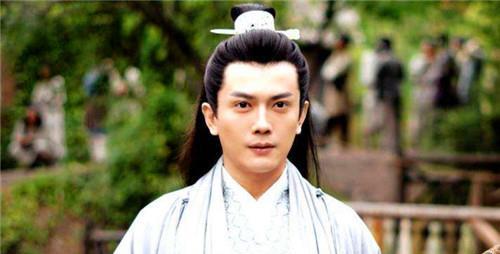Friends who like to read the list of gods will know that Xi bo marquis Ji Chang has two famous sons, the eldest son is called Bo Yi Kao, and the second son is called Ji Fa, the ending of Bo Yi Kao in the novel is unfortunate, he has been intelligent and virtuous since he was a child, and he is an excellent prince, but in order to rescue his father from entering the Shang capital and becoming a groom of the King of Shang, he was unfortunately framed by Dai Ji, and finally made into a meat soup by the cruel King of Lu and let Ji Chang drink it.
In the main history, there are also two theories about the outcome of Bo Yi Kao, one is that he was killed by King Huan, and the other is that he was abolished by King Wen of Zhou, and a more talented Ji Fa was established as the heir, resulting in the final depressed death of Bo Yi Kao.

However, the thing that made the audience curious during this period was why Ji Chang's surname was Ji, and the eldest son was called Bo Yi kao, but did not follow his father's surname? In fact, this has to start from the ancient surname system, although people are now accustomed to using their father's surname as their surname, and in ancient times primitive tribes did not explicitly say so.
Surnames originated from tribal names or tribal chiefs' names, so as to facilitate the identification of descendants of different clans, in order to intermarry between each other, before the Spring and Autumn Warring States, surnames are still a stage of origin, in the process of continuous invention and discovery, many people are not based on their father's name as a surname, but with fiefs, such as "Qin, Zhao", or with official positions: "Sima ".
So how did the name Bo Yi kao come about? In fact, he followed his father's surname, also surnamed Ji, people can call it "Ji Bo Yi Kao" or "Ji Kao", the meaning of "Bo", in the patriarchal society, can indicate that he is the eldest brother, and Ji Fa, as the second son, we can also call him Zhongfa, Zhong is the second meaning.
The "Zuo Biography" records: "Yi Wei Bo Zhong Uncle Ji TuZhi", which means that the family brothers are ranked in order, Bo is the eldest, Zhong is the second, Uncle is the third, and Ji is the youngest. Therefore, we often say that the idiom "difficult to distinguish between the two", which means that it is difficult to distinguish between the long and the short.
"Bo, put also, control the housekeeping also." In feudal society, the eldest son usually inherits the father's business to be the head of the family, in the past, Botong has a number of common characters, and the "hegemony" of the Spring and Autumn Five Hegemons can actually be used as Anbo, which means the elder.
"Zhong, Zhongye, Zhongye." Confucius because of the ranking of the second oldest, so his word is "Zhongni", some people in the world joke, also called it "Kong Lao'er", what is the advantage of naming the ranking method? There were too many aristocratic princes in ancient times, and it was difficult for fathers to distinguish between surnames and names, so that's it.
However, sometimes, the use of the ordering method to call the name, but also more catchy, interestingly, the fourth son of King Wen of Zhou named "Dan", later generations called him "Ji Dan" or "Ji Dan" is not very good, taking his title, "Zhou Gongdan" to describe.
And Boyikao's Yi was related to the official position he held at that time, Boyikao was both the official in charge of the city and the son of Xi Bohou, which is why the Grand Duke of Jichang was called Boyikao.